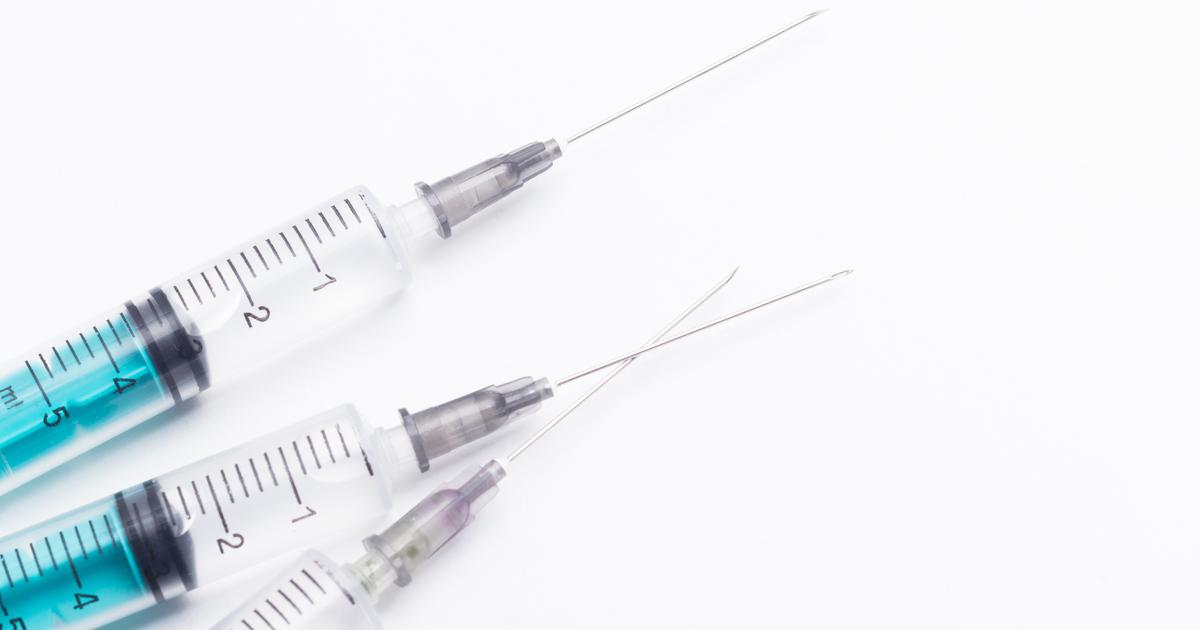It took less than a year to design, test, validate, produce and distribute vaccines on a massive scale, including four main ones: Pfizer, Moderna, AstraZeneca and Janssen.
When it usually takes between five and ten years.
Even the Ebola vaccine, developed in record time, had taken four years of hard work.
How to explain such a feat?
"It is first and foremost the fruit of titanic work on the part of the scientific community," estimates Professor Alain Fischer, president of the Orientation Council on the vaccine strategy.
Even for messenger RNA, which does not date from yesterday.
Research had been carried out for thirty years already, in particular against cancer.
It is therefore on a "technological base" already well advanced that two of them (Pfizer and Moderna) were able to emerge so quickly.
"Even if it took a considerable commitment to take the last steps", still recalls the "mister vaccine" of the government.
About twenty consortia have emerged
A commitment fueled by multiple collaborations.
In all, around twenty consortia have been formed, bringing together academic research institutes (Pasteur in France, Harvard in the United States, Oxford in Great Britain, universities in China, etc.), pharmaceutical giants (Sanofi, GSK, Merck, Johnson & Johnson, AstraZeneca…) and start-ups (BioNTech in Germany, Valneva in France…).
"The World Health Organization has also played a leading role," remarks Nathalie Coutinet, health economist and teacher-researcher at Sorbonne-Paris Nord University, in particular by publishing in the spring of 2020 the sequencing of the genome of the virus.
This saved precious time.
"
PODCAST.
How Pfizer won the vaccine race
As usual in a crisis situation, money was the sinews of war.
“Considerable sums, from both the private and the public, have been put on the table,” observes Nathalie Coutinet.
In this game, the Americans were the first to draw.
"
With, at their disposal, two formidable weapons: the Barda (Biomedical advanced research and development authority), founded in 2006 within the American Department of Health to support private laboratories in the fight against pandemics, and the "Warp speed" , a task force created by the Trump administration, led by an army general.
Access to vaccination, the other challenge to be taken up
For its part, the European Commission is organizing “engagement marathons” from the spring of 2020 with state and private donors.
That of May 4, 2020 raised 9.8 billion euros.
In June, it also created an “Inclusive Alliance for Vaccines” at the initiative of France, Germany, Italy and the Netherlands.
“Here again, it was a matter of finding funds,” recalls the cabinet of Agnès Pannier-Runacher, the Minister for Industry.
Enough to pool negotiations with laboratories at European level.
And place order pre-agreements on deliveries of upcoming doses.
"
Read alsoVaccine against Covid-19: the mega business of laboratories
A windfall for these same laboratories which can thus have fresh money and increase their production capacities. With one condition: that it concerns European sites. Pfizer for example, an American laboratory but largely established on the European continent, multiplies its production by ten in a few months. Enough to raise it to the rank of the world's leading producer of vaccines against Covid.
On the research side, the CEPI (Coalition for Innovation in Epidemic Preparedness), founded in 2017 in Davos to fight viruses, is also associated with the battle.
"There was a conjunction of factors," sums up Thierry Breton, the European commissioner in charge of the internal market.
The investments made for several years in research and biotechs have borne fruit.
Of the five vaccines marketed today, four have been financed by European funds.
"
VIDEO.
Here are the differences between the four main vaccines distributed in France
The fact remains that this incredible mobilization must now take place over time. Because, although more than two billion doses of vaccines have been injected into the world according to an AFP count, the pandemic is far from being contained. The proliferation of variants raises concerns. "On this point, messenger RNA is a plus," says Steve Pascolo, immunologist and pioneer of this technique, now director of research at the University Hospital of Zurich (Switzerland). It makes it possible to produce adapted versions of a vaccine in a few weeks. Access to immunization, as well as membership, in developing countries, starting with Africa, will be the other challenge. Hence the debate on the lifting of patents. And support for COVAX, the mechanism which aims to ensure a more equitable distribution of production.Moreover, the richest countries in the world have just promised a billion doses to the poorest. Enough to eradicate the virus?









